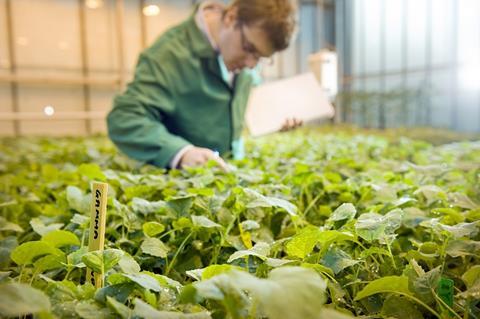The main aim of the collaboration is to be able to quickly identify lead genes associated with important crop traits in order to develop crops with durable resistance
BGI-Sanya, part of the Chinese BGI Group, one of the world’s largest genome research organisations, and Dutch agro-food research company KeyGene have announced the start of their first research collaboration.
The principle goal is to study the added value of BGI’s revolutionising spatial transcriptomics platform, Stereo-Seq, for plant breeding.
The first joint project is set to focus on identifying lead genes involved in the interaction between plants and pathogens in order to develop crop varieties that contain novel and durable resistances against pathogens.
“Gene expression analysis through transcriptomics technology is considered to be one of the most powerful approaches for functional analysis and identification of lead genes potentially involved in important crop traits,” a press release from the companies stated. “However, many of these genes are active in only a small part of the plant. Genes for carbohydrate storage may be active in seeds, and not in leaves. Genes involved in the plant’s defence against a pathogen may be active in specific parts of leaf tissue where the fungus attacks.”

Bulk RNA sequencing, which measures gene activity in whole plants or organs, is not sensitive and precise enough to identify relevant genes that are expressed only locally but are involved in a trait of interest, according to the companies.
“Plant breeding would therefore be greatly supported when it would be possible to reveal gene activity in a spatial context across the plant tissue landscape,” the press release continued. “One would then be able to discover relevant gene activity associated with important crop traits even when only a limited number of cells is involved, like upon localised infection by a plant pathogen. This approach is called spatial transcriptomics.”
BGI recently introduced Stereo-Seq technology for spatial transcriptomics. This technology is reportedly one of the first to read out gene expression in situ at the sub-cellular level.
“We are very excited that the collaboration with BGI Sanya will support us to be at the forefront of exploring the possibilities of this promising technology for breeding the world’s future crop varieties that will contribute to the sustainable production of sufficient and good food,” said Arjen van Tunen, CEO of KeyGene.
Fang Xiaodong, CEO of BGI-Sanya, added: “Our collaboration with KeyGene gives us great opportunities to study the value of Stereo-Seq for plant research and plant breeding in industry and the academic world around the globe.”
According to BGI-Sanya and KeyGene, the use of spatial transcriptomics to discover lead genes will help to breed new plant varieties with resistance to pests and disease, thereby supporting sustainable food production across the world.



